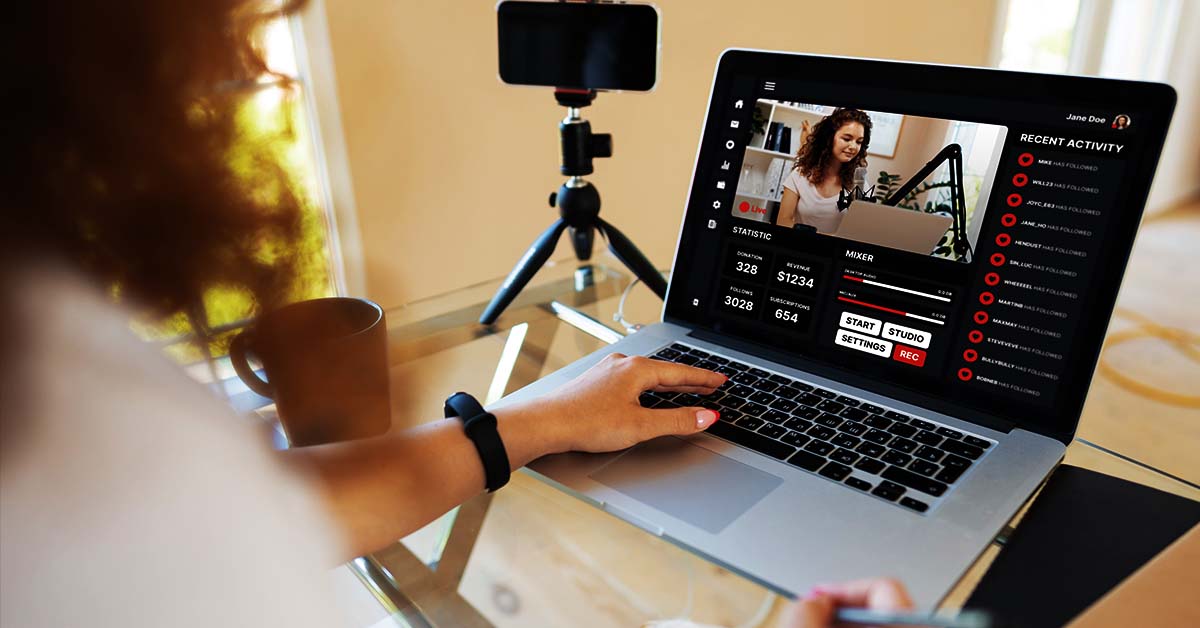YouTube Live Streams are a powerful tool for engaging with your audience in real time, building trust, and driving interaction. But did you know that they can also significantly boost your search visibility when properly optimized? In this guide, we’ll explore how to make your YouTube Live Streams SEO-friendly so you can reach more viewers, increase watch time, and grow your channel more effectively.
SEO for YouTube Live Streams
How to Optimize Live Streams for Better Search Visibility and Engagement
Why SEO Matters for Live Streams
Just like pre-recorded YouTube videos, live streams are indexed by search engines and can appear in both YouTube and Google search results. Optimizing your streams ensures they’re discoverable before, during, and even after they air. Effective SEO for live content increases visibility, draws in organic viewers, and enhances engagement through improved relevance.
Pre-Stream Optimization
1. Keyword Research
Start by identifying keywords your audience is searching for. Use tools like:
- YouTube’s search bar autocomplete
- Google Trends
- TubeBuddy or VidIQ
- AnswerThePublic
Focus on both broad and long-tail keywords related to your topic. Think in terms of intent: What problem is your stream solving? What questions will it answer?
2. Compelling Titles
Include your main keyword at the beginning of the title. Use action verbs and clear value propositions:
- “Live SEO Audit: Fix Your Website in Real-Time”
- “YouTube Algorithm Q&A – Live Expert Session”
3. Descriptions that Convert
Your description should be at least 250 words and include your primary and secondary keywords naturally. Mention what viewers will learn, who the stream is for, and include timestamps if relevant. Also:
- Link to relevant resources
- Include CTAs (subscribe, like, comment)
- Add hashtags related to your topic
4. Tags and Categories
Use tags to reinforce your keywords. Mix broad terms (“SEO”) with specific ones (“live SEO audit”). Set the appropriate video category for accurate contextual indexing.
5. Custom Thumbnails
Create a branded, eye-catching thumbnail. Even for live videos, this matters:
- Bold, readable text
- High-contrast colors
- Consistent layout with your brand
Live Stream Setup for SEO
1. Schedule in Advance
Scheduling streams creates a shareable URL and allows YouTube to begin indexing your video. It also helps in promoting your stream beforehand.
2. Enable Closed Captions
Enable auto-captions or upload your own transcript. Captions help with accessibility and SEO, as YouTube’s algorithm scans this text for context.
3. Choose the Right Settings
- Privacy: Set the stream to Public
- Monetization: Enable if eligible
- Chat: Keep chat replay on for added engagement value
4. Optimize the Stream Key and Encoder Settings
Use the recommended bitrate and resolution settings for a high-quality stream. A smoother viewing experience increases watch time.
Engagement During the Stream
1. Reiterate Keywords Naturally
Mention your primary keywords periodically throughout the stream. This adds contextual signals to the audio transcript YouTube processes.
2. Encourage Engagement
Prompt users to:
- Like the stream
- Comment or ask questions
- Share the stream link
Engagement during the live event signals relevancy and can increase real-time discoverability.
3. Use On-Screen Visuals
Use lower thirds, banners, or slides that repeat your keyword. Visual reinforcement enhances retention and helps viewers understand your content better.
4. Moderate and Highlight Comments
Pin relevant questions or keyword-rich comments to show YouTube what’s important. Highlighting comments boosts community interaction and shows value to new viewers.
Post-Stream SEO
1. Update the Title and Description
Tweak your title or description if the conversation changed direction. Reflect any unexpected value that emerged.
2. Add Timestamps and Chapters
YouTube allows you to break your video into sections. This improves the user experience and SEO by making your content scannable.
3. Create a Custom Thumbnail
If your initial thumbnail was generic, replace it with a more specific post-stream image that reflects key takeaways.
4. Promote the Replay
- Embed in blog posts
- Share in newsletters
- Post to social media with highlights
Repurposing helps the stream gain traction even after it’s ended.
5. Add to a Playlist
Include your live stream in a relevant playlist. This boosts session duration and interlinks your content, both of which help SEO.
Advanced SEO Tactics
1. Use Schema Markup on Your Website
If you’re embedding the stream on your blog or website, use VideoObject schema to give search engines more data about your content.
2. Leverage Community Tab
Post polls or ask questions about the live stream topic in your community tab. Increased interaction may lead to better algorithmic favor.
3. Include the Stream in a Series
Turn related streams into an ongoing series. Label them clearly in your titles and descriptions. This builds authority on the topic.
4. Collaborate with Other Creators
Cross-promotions during live sessions increase engagement, views, and backlinks—boosting SEO naturally.
5. Check Analytics
Monitor:
- Average view duration
- Peak concurrent viewers
- Engagement rate (likes, comments)
- Traffic sources
Use this data to refine future live stream topics and SEO strategies.
Common SEO Mistakes to Avoid
- Ignoring descriptions or leaving them too short
- Using misleading or clickbait titles
- Failing to promote before the live stream
- Not responding to comments during and after the stream
- Forgetting to repurpose and share the replay
Final Thoughts
YouTube Live Streams are not just a way to connect—they’re a strategic SEO asset. When planned and optimized correctly, live content can boost your discoverability, build deeper audience connections, and drive long-term growth. By following the SEO practices above before, during, and after your stream, you can turn live moments into lasting traffic drivers.
Whether you’re just starting out or are a seasoned content creator, treating live videos like evergreen assets will put you ahead in a competitive platform where visibility is everything.
Now, go live—and get found.







 Edit Your Footage
Edit Your Footage
Leave a Reply